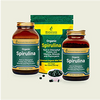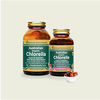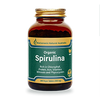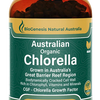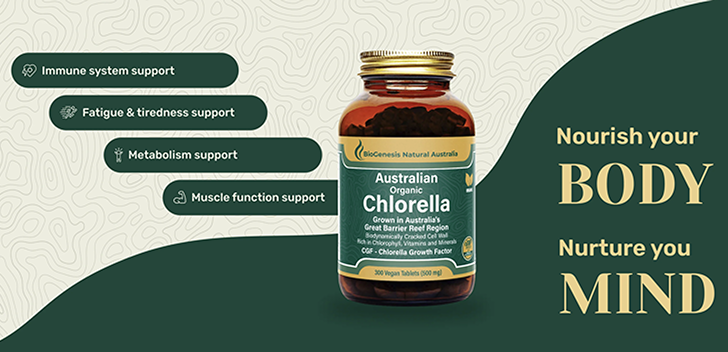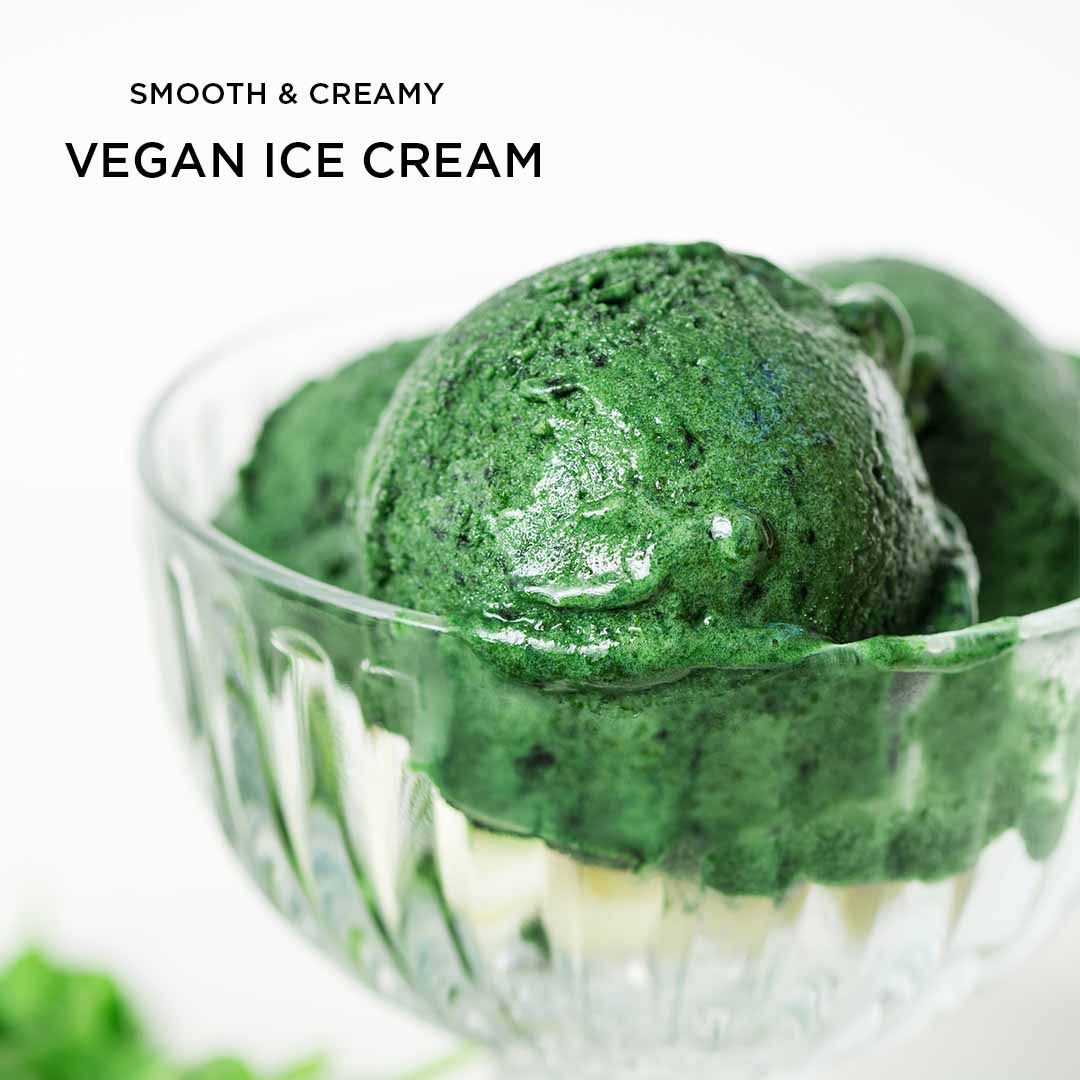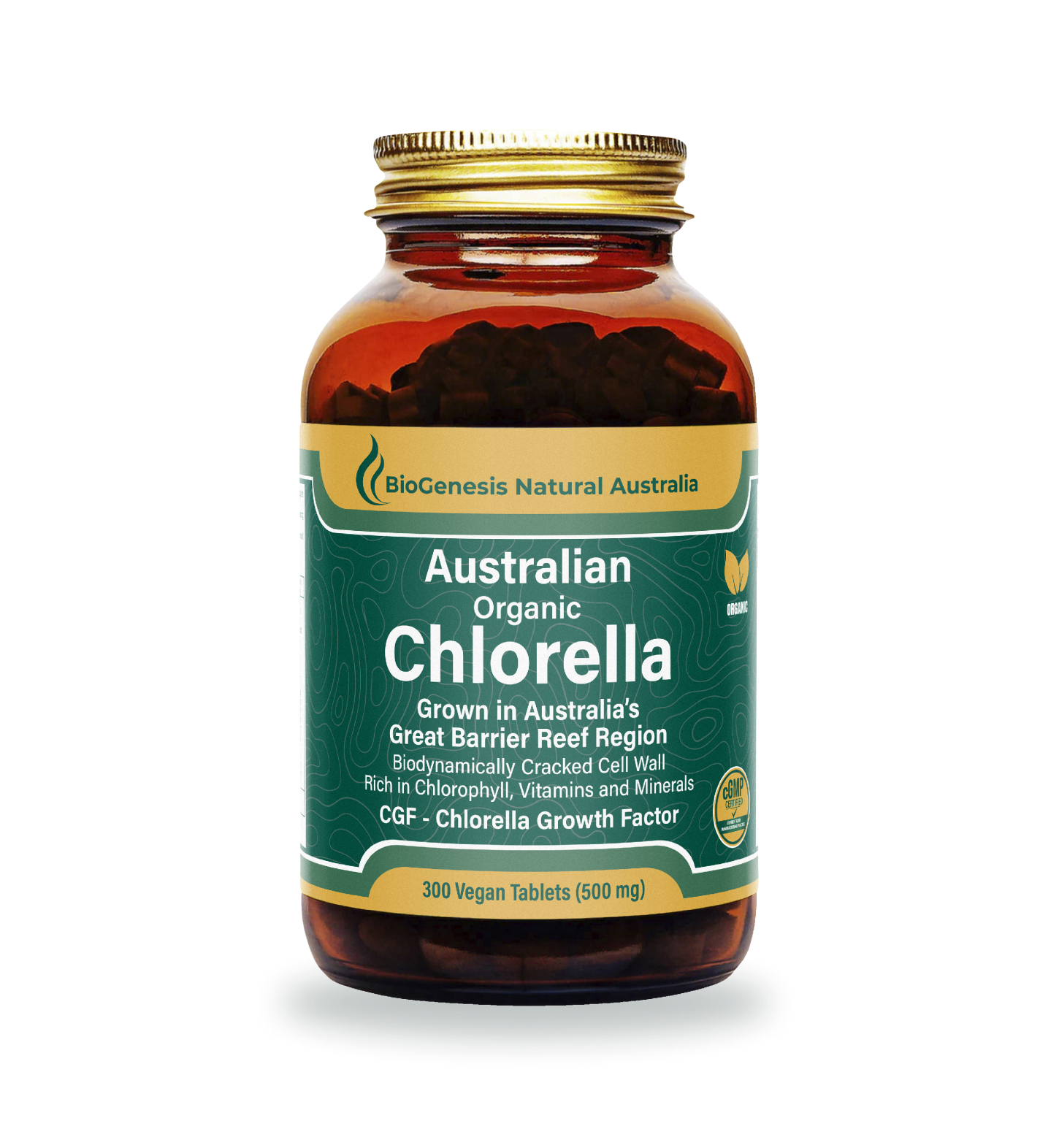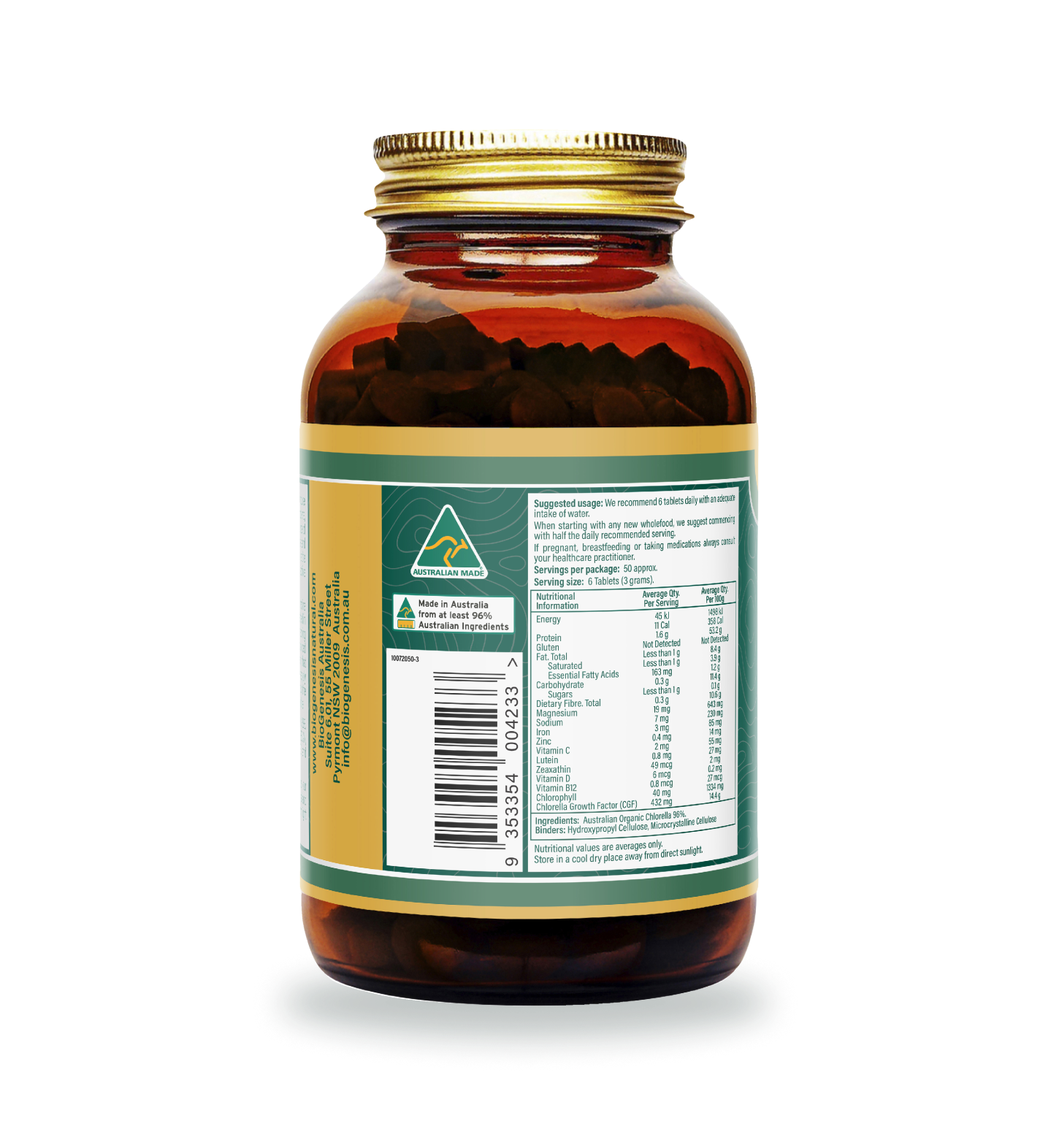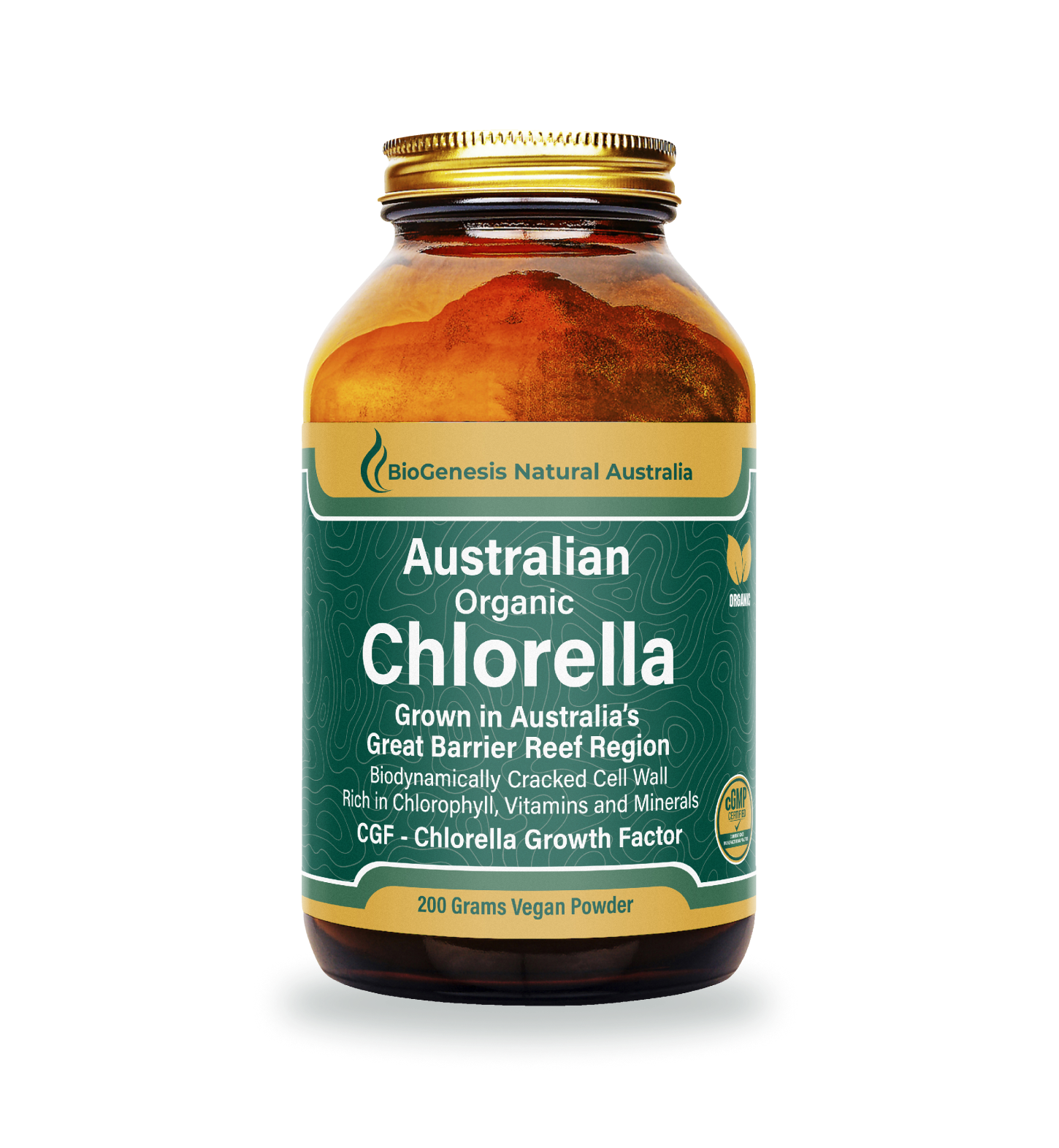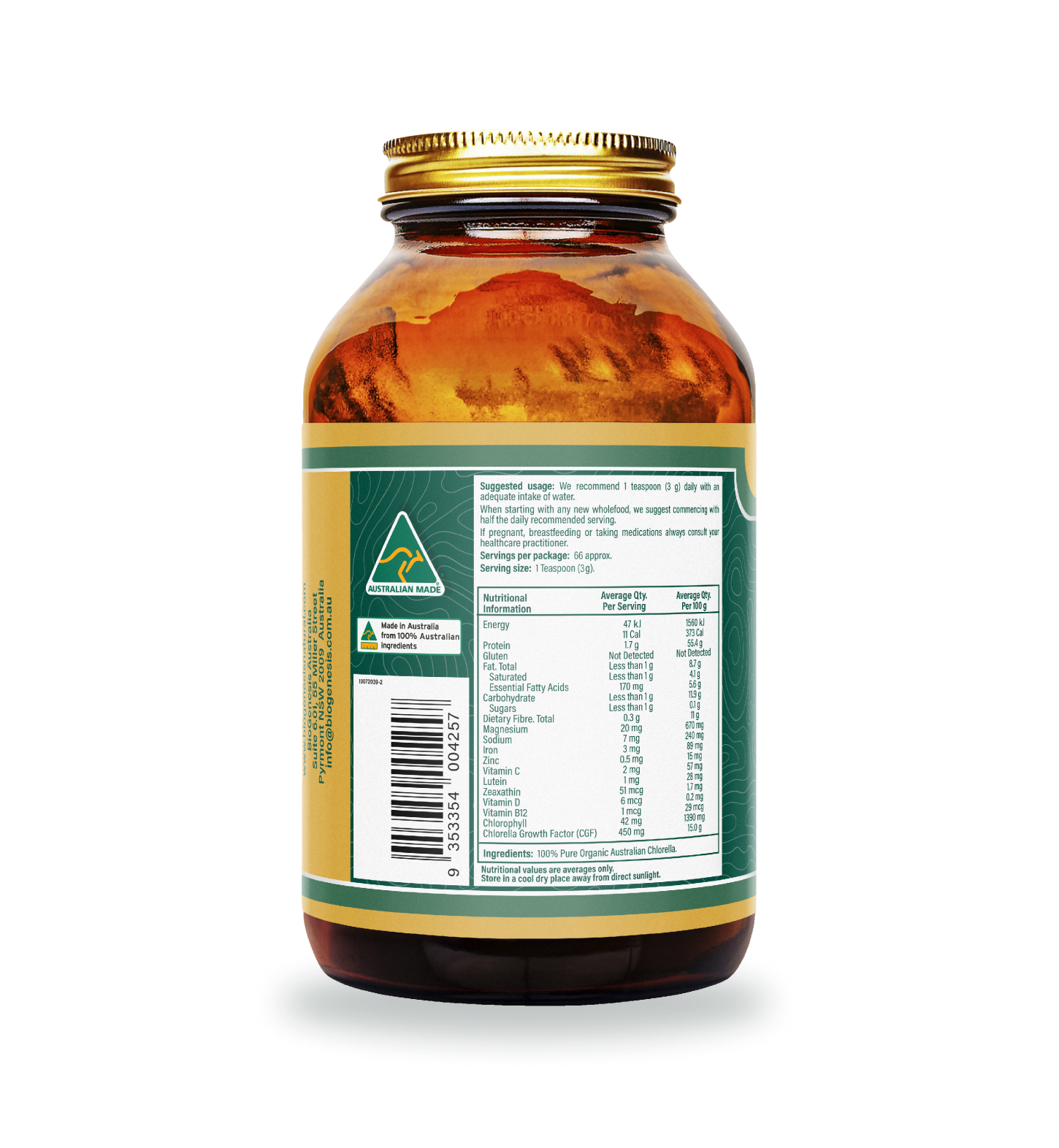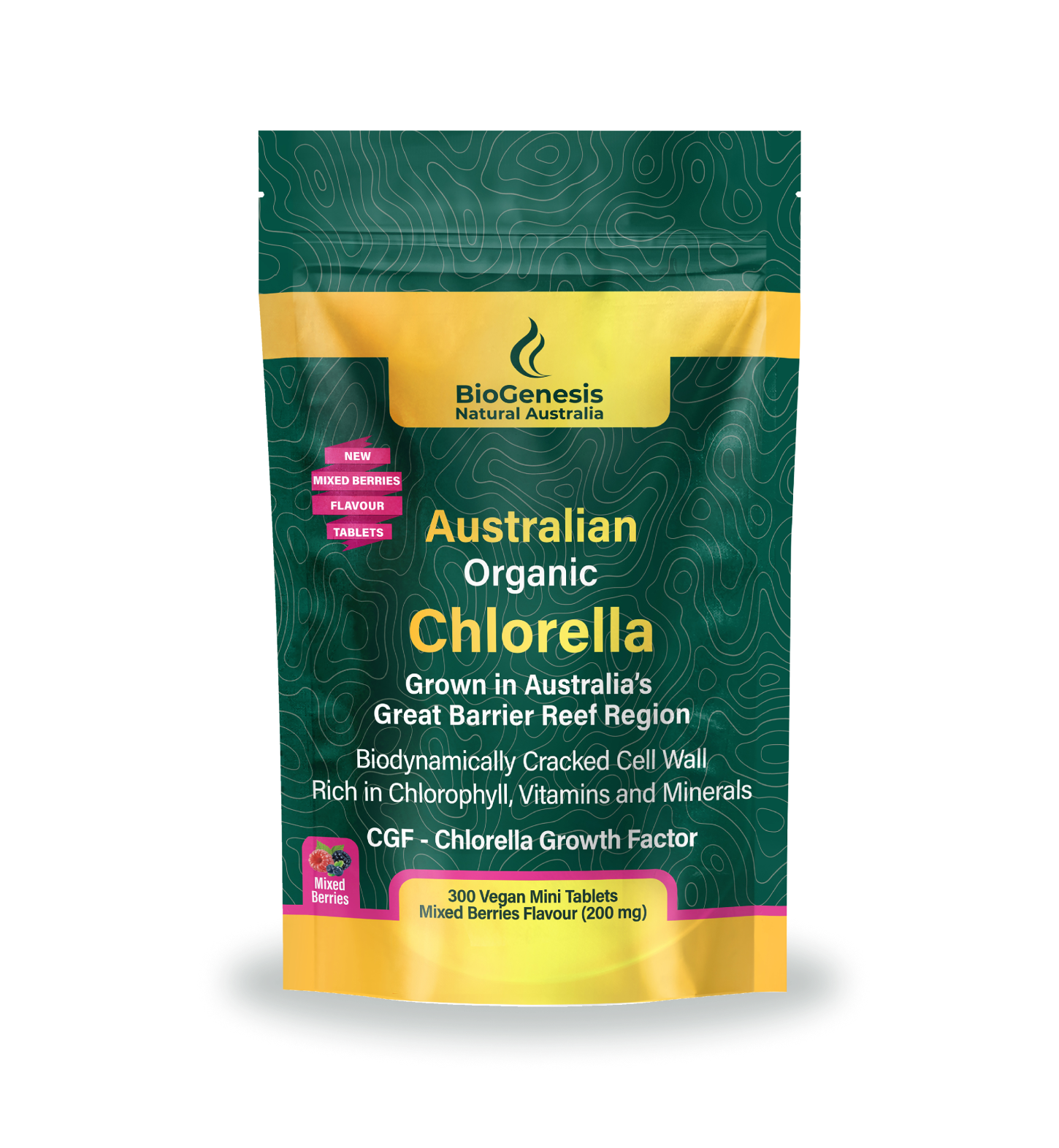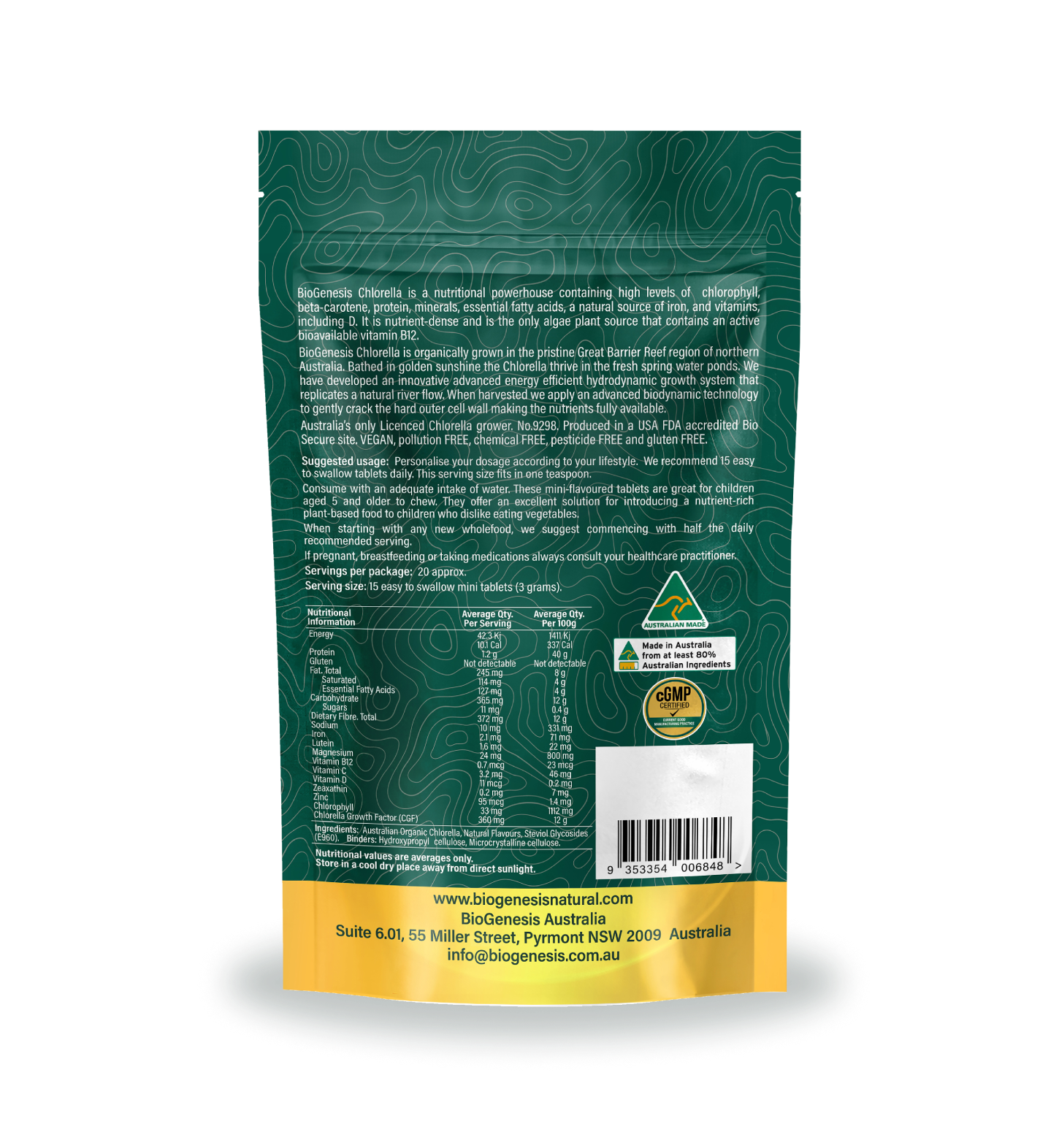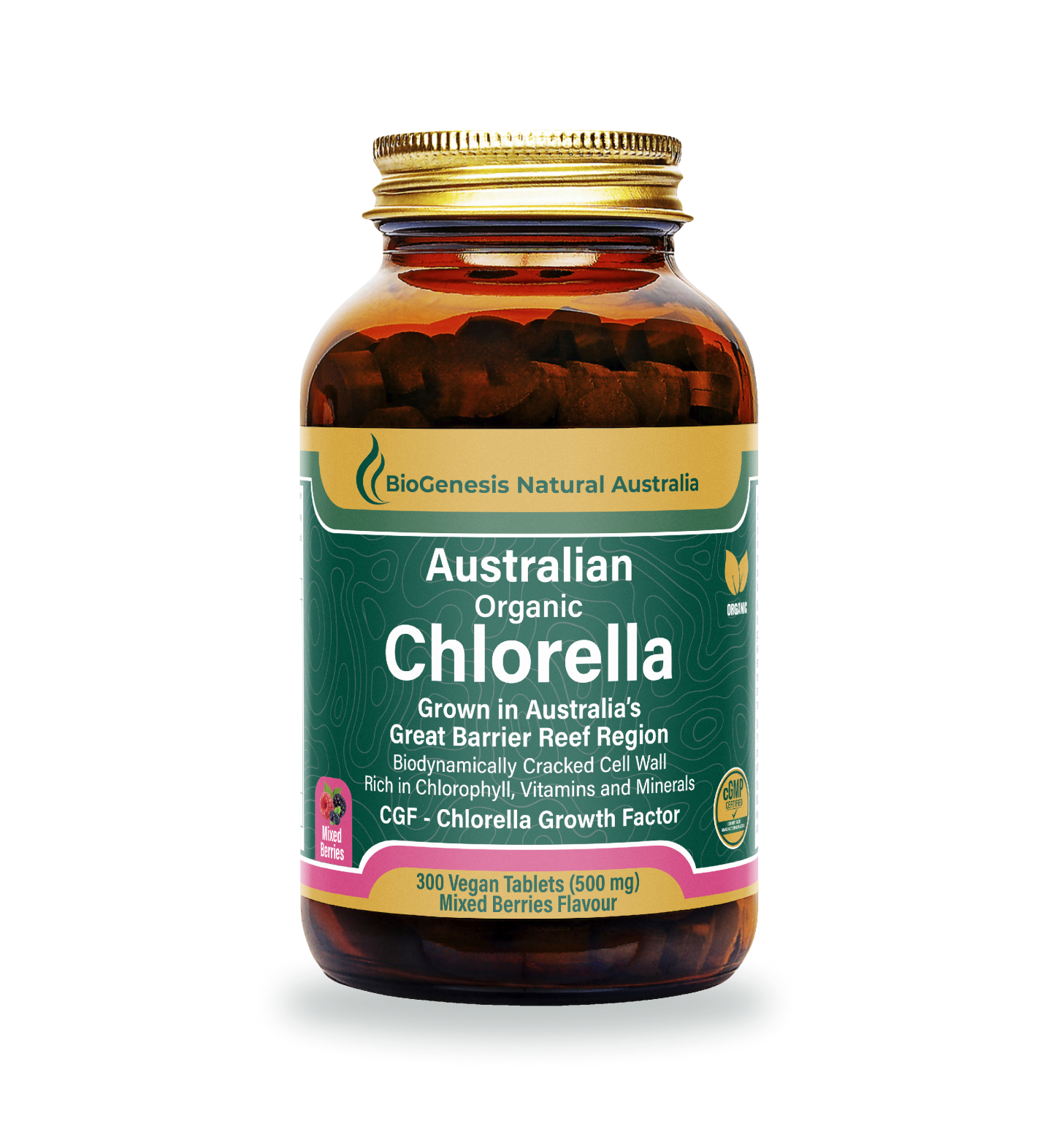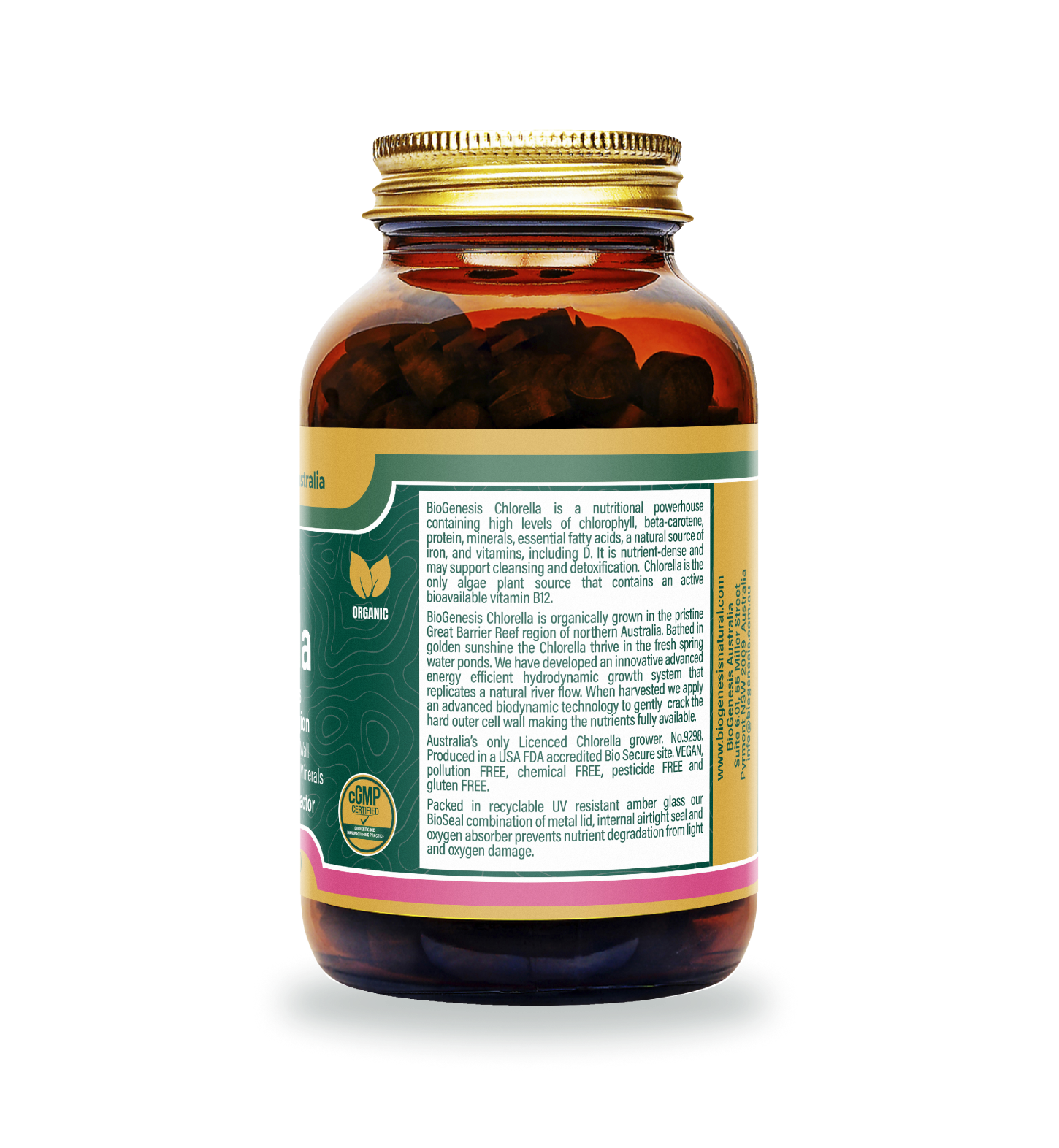
How Chlorella Supports Weight Loss
Losing weight is a common goal for many people. Whether it's for health or aesthetic reasons, the wide-spread desire to become leaner has spurned an enormous several billion dollar weight loss industry with endless powders, teas, and diet protocols for customers to choose from (Laudenslager, 20211). The science behind weight loss is surprisingly complex despite the recurrent simplified explanation of calorie surpluses or deficits being the only factor. There are also many "miracle fixes" on the market that claim to have drastic overnight results from a single substance or behavior change. These claims, however, are almost always too good to be true. The reality is that weight loss is an extremely complicated process metabolically speaking, with a vast number of factors. There is no single substance that can achieve dramatic weight loss results without lifestyle modification. Simply reducing calories is also not always an effective or healthy strategy for everyone. Addressing diet, physical activity, sleep, stress, toxic load, and general health are all important factors to address when looking to improve body composition. Chlorella is one substance that can assist with weight loss in a holistic manner by improving several of those parameters and supporting overall health.
The Weight Loss Trap: Why Your Diet Isn't Working
Before examining the ways chlorella can help to achieve weight loss, it's worth noting not all weight loss is considered to be healthy. The term weight-loss is often used interchangeably with fat-loss though the two have slightly different meanings. Weight-loss simply means a reduction in total body mass, meaning it could be from muscle or fat stores. Muscle loss is rarely a healthy goal since muscle-wasting can cause fragility and cause a number of metabolic health issues (Palus, 20142). Fat-loss with muscle preservation or growth is generally a much more health-oriented target. This is why it's important to differentiate between the two and not become overly focused on the number on the scale. The sought-after health benefits associated with a healthy body weight arise more directly from body composition rather than body size (Ramirez-Velez, 20193).
10 Behaviors For Healthy Weight Loss
High body fat percentages are often associated with a higher risk of metabolic syndrome and several corresponding diseases in scientific literature, though there are also health risks associated with being at an excessively low body fat percentage (Darroudi, 20184). Some body fat is essential for human health. Fat supplies energy, surrounds and protects vital organs, helps the body maintain homeostasis in cold environments, stores vitamins, and secretes hormones as some of its main functions. If a body's fat stores are too low, it can cause heart issues, poor temperature regulation, low-energy, hormonal issues, and even fertility problems (Golubnitschaja, 20215). It's therefore clear that there's a range of optimal body fat that best serves health. Too much and too little are both undesirable, and every individual tends to have a unique range that's personally best for them.
It's also known that not all body fat stores are created equal. The body contains three distinct kinds of fat: brown fat, white fat, and beige fat. Fat is capable of producing hormones that can affect bodily processes positively or negatively. Brown fat has a beneficial effect on metabolism and is even being researched on whether it can help to reduce obesity and metabolic diseases (Yoneshiro, 20196). Conversely, high amounts of white fat stored in the abdominal region is associated with an increased risk of type 2 diabetes and heart disease (Gulati, 20177). Based on this information, it's clearly important not to demonize all forms of fat in the body. Considering the whole picture allows for a better understanding of what particular aspects of body fat improve or worsen health. This perspective is well aligned with using chlorella as a weight-loss aid since it doesn't simply reduce fat, but it reduces the negative health outcomes associated with high body fat and low muscle mass body compositions.
Types Of Body Fat: Benefits, Danger, and More
The most obvious reason chlorella is able to assist with healthy fat loss is because of its nutritional profile. It's a nutrient-dense and high-protein food which means it offers a wealth of nutritional benefits for few calories (Bito, 20208). The nutritional density of foods is an important factor to consider when looking to lose fat mass through diet modification. This is because the body still requires an adequate amount of vitamins and minerals despite the decreased caloric intake (Fuhrman, 20109). The high protein content is also particularly helpful since protein is a satiating macronutrient that provides good steady energy and decreased hunger for long periods of time. High-protein diets are commonly recommended for fat loss protocols because of this, along with the fact that adequate protein intake preserves muscle (lean-mass) stores, which is a metabolically healthy approach to weight loss (Moon, 202010).
A High-Protein Diet to Lose Weight and Improve Health
Chlorella is also known to contribute to good gut health (Lv, 202213). This is relevant to weight loss because the gut microbiome is intricately linked with hormone production, metabolism, energy, and even mood: all of which can play a role in body composition (Aoun, 202014). A well-populated gut microbiome allows for better nutrient absorption, less chronic bodily inflammation - and most importantly for weight loss - it may increase metabolism. The unique bacterial makeup of a gut microbiome plays a role in the hormones that signal for energy burning or energy storage as fat (Thompson, 201215). Chlorella is able to tip the scales towards an energy burning metabolism by feeding the bacteria in the gut that cause this effect.
How Your Gut Bacteria Can Influence Your Weight
Another broad yet important area of health that impacts body composition is environmental toxins. Chlorella is generally helpful for addressing these concerns, though it should be combined with a cautious selection of product and lifestyle choices.
EDCs - An Invisible Cause of Obesity
It's clear from the several health-supporting effects of chlorella that it can play a useful role in weight loss. Despite the current confusion surrounding what constitutes a healthy body composition and the many false promises of various weight-loss messaging, there are still healthy options available that can support this goal. The pursuit of good health and weight loss should never be at odds, so any substance that doesn't support overall good health may be a "quick-fix" solution rather than a sustainable option. Chlorella is a health supporting, nutrient-dense food that deserves a place on the plate of both those looking to lose weight, or simply those aiming to maintain good health for many years to come.
References
-
Adams, S. H., & Anthony, J. C. (2021). Lutein and zeaxanthin in dietary supplements: current status and regulatory implications. Current Obesity Reports, 10(2), 104-112. https://doi.org/10.1007/s13679-021-00428-y
-
Ahluwalia, N., Genoux, A., & Ferrieres, J. (2015). Iron status is associated with carotid atherosclerotic plaques in middle-aged adults. Journal of Nutrition, 145(6), 1211-1215. https://doi.org/10.3945/jn.114.208538
-
Avila, J. M., & Gutierrez-Repiso, C. (2019). Lutein and zeaxanthin in dietary supplements: current status and regulatory implications. Nutrients, 11(1), 24. https://doi.org/10.3390/nu11010024
-
Basu, S., & Yoffe, P. (2014). Dietary factors that promote or retard inflammation. IUBMB Life, 66(5), 351-359. https://doi.org/10.1002/biof.1459
-
Böhm, V. (2021). Lutein and zeaxanthin in dietary supplements: current status and regulatory implications. European Journal of Clinical Nutrition, 75(6), 947-957. https://doi.org/10.1007/s13167-021-00251-4
-
Bresciani, L., Calani, L., & Bruni, R. (2019). Lutein and zeaxanthin in dietary supplements: current status and regulatory implications. Journal of Food Science, 84(9), 2370-2376. https://doi.org/10.1111/1750-3841.14734
-
Chirinos, J. A., & Rietzschel, E. R. (2017). Arterial stiffness, central pressures, and incident hospitalized heart failure in the European Project on Genes in Hypertension (EPOGH) study. Journal of the American College of Cardiology, 70(9), 1142-1153. https://doi.org/10.1016/j.jacc.2017.06.061
-
Cuello-Garcia, C., & Pérez-Gaxiola, G. (2020). Lutein and zeaxanthin in dietary supplements: current status and regulatory implications. Nutrients, 12(9), 2751. https://doi.org/10.3390/nu12092751
-
DiNicolantonio, J. J., & O'Keefe, J. H. (2010). The importance of marine omega-3s for brain development and the prevention and treatment of behavior, mood, and other brain disorders. Nutrition Journal, 9(1), 51. https://doi.org/10.1186/1475-2891-9-51
-
Durán-Agüero, S., Silva-Torres, L. A., & Vega, V. (2020). Lutein and zeaxanthin in dietary supplements: current status and regulatory implications. Nutrients, 12(10), 3166. https://doi.org/10.3390/nu12103166
-
Estruch, R., Ros, E., & Salas-Salvadó, J. (2004). Primary prevention of cardiovascular disease with a Mediterranean diet. The Lancet, 363(9421), 1779-1789. https://doi.org/10.1016/S0140-6736(04)16358-2
-
Galbete, C., Schwingshackl, L., & Schwedhelm, C. (2018). Evaluating Mediterranean diet and risk of chronic disease in cohort studies: an umbrella review of meta-analyses. European Journal of Epidemiology, 33(10), 909-931. https://doi.org/10.1007/s10654-018-0427-3
-
Gammone, M. A., Riccioni, G., & D'Orazio, N. (2019). Carotenoids: potential allies of cardiovascular health? Food & Nutrition Research, 63, 1646. https://doi.org/10.29219/fnr.v63.1646
-
Goyal, A., Terry, M. B., & Siegel, A. B. (2020). Serum antioxidant nutrients, vitamin A, and mortality in U.S. Adults. Cancer Epidemiology, Biomarkers & Prevention, 29(6), 1133-1144. https://doi.org/10.1158/1055-9965.EPI-19-1061
-
Gurven, M., & Kaplan, H. (2014). Physiological dysregulation and age-related disease among mature adults in a small-scale subsistence population. American Journal of Human Biology, 26(5), 681-692. https://doi.org/10.1002/ajhb.22254
-
He, M., van Greevenbroek, M. M., & Schalkwijk, C. G. (2014). The prevalence of the metabolic syndrome and associated risk factors for cardiovascular disease in type 1 diabetes: the EURODIAB Prospective Complications Study. Diabetic Medicine, 31(8), 959-966. https://doi.org/10.1111/dme.12442
-
Hruby, A., & Hu, F. B. (2019). The Mediterranean diet and cognitive function among healthy older adults in a 6-month randomized controlled trial: The MedLey Study. The American Journal of Clinical Nutrition, 109(3), 830-839. https://doi.org/10.1093/ajcn/nqy270
-
Jankord, R., & Jemiolo, B. (2019). Regulation of heat shock proteins in young and old human subjects. Physiological Reports, 7(7), e14078. https://doi.org/10.14814/phy2.14078



